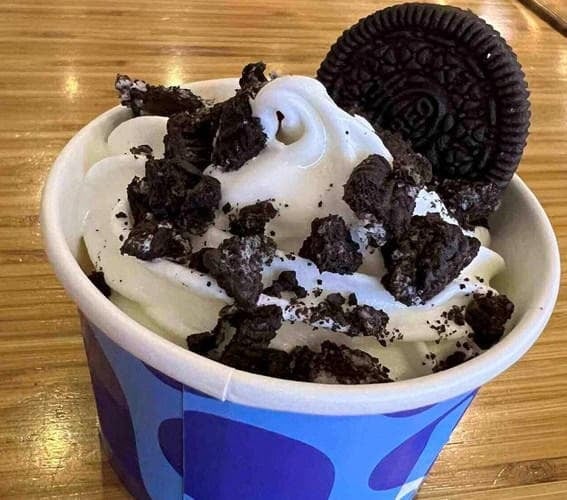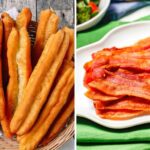Sugar-Sweetened Beverages
Soft drinks, energy drinks, and boba tea are loaded with sugar and are major contributors to visceral fat buildup. According to the Journal of Nutrition, consuming sugar-sweetened beverages significantly increases visceral fat due to the liver’s response to excess fructose.

Deep-Fried Foods
French fries, fried chicken, and other deep-fried foods are high in trans fat and empty calories, increasing the risk of visceral fat accumulation. The World Health Organization (WHO) advises against consuming this type of fat as it causes inflammation and promotes the storage of excess fat in the abdominal cavity.
Processed Meats and Snacks
Sausages, bacon, cookies, and processed snacks are packed with salt, sugar, and preservatives. The American Journal of Clinical Nutrition suggests that frequent consumption of these foods can lead to insulin resistance, promoting the buildup of visceral fat.
Refined Grains
White bread, white rice, and refined pasta have a high glycemic index, causing blood sugar spikes after meals. This prompts the body to store excess energy as visceral fat. Individuals who regularly consume refined grains tend to have higher levels of abdominal fat compared to those eating whole grains.

Alcoholic Beverages
Beer and liquor contribute to “beer belly” or visceral fat. According to the Journal of Hepatology, alcohol impairs liver function, making it more prone to convert excess energy into fat, which is then stored in the abdomen.
Ice Cream and Sweet Desserts
Ice cream, cakes, and sweet desserts are loaded with sugar and saturated fat. Research published in the British Journal of Nutrition suggests that reducing the consumption of these foods may lower the risk of abdominal obesity.
Fast Food
Hamburgers, pizzas, and other fast food options are typically high in fat, salt, and empty calories. A study in the International Journal of Obesity found that a diet high in fast food can significantly increase visceral fat within a few weeks.
Managing Visceral Fat
Choose healthier options: Opt for green vegetables, whole grains, and lean proteins.
Reduce sugar intake: Replace soft drinks with water, unsweetened tea, or fresh fruit juices.
Exercise regularly: Engage in brisk walking, running, or cardio exercises to effectively burn visceral fat.
Control portion sizes: Limit consumption of fat-promoting foods and adjust your daily calorie intake.




































